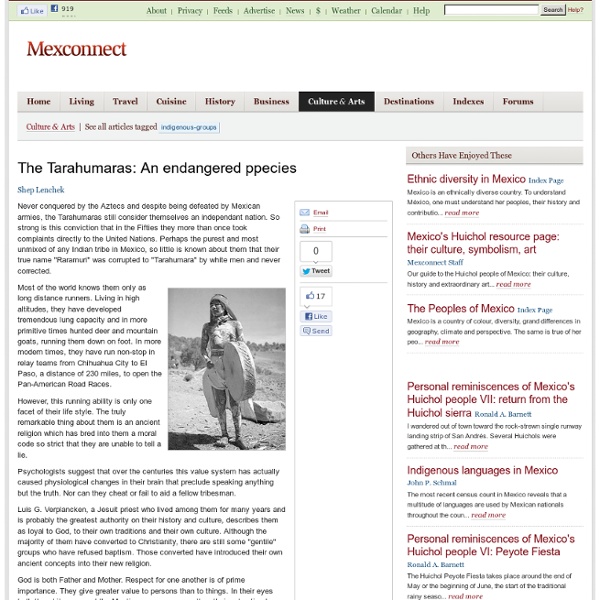The Tarahumaras: An Endangered Species : Mexico Culture & Arts

Related:
Related:



